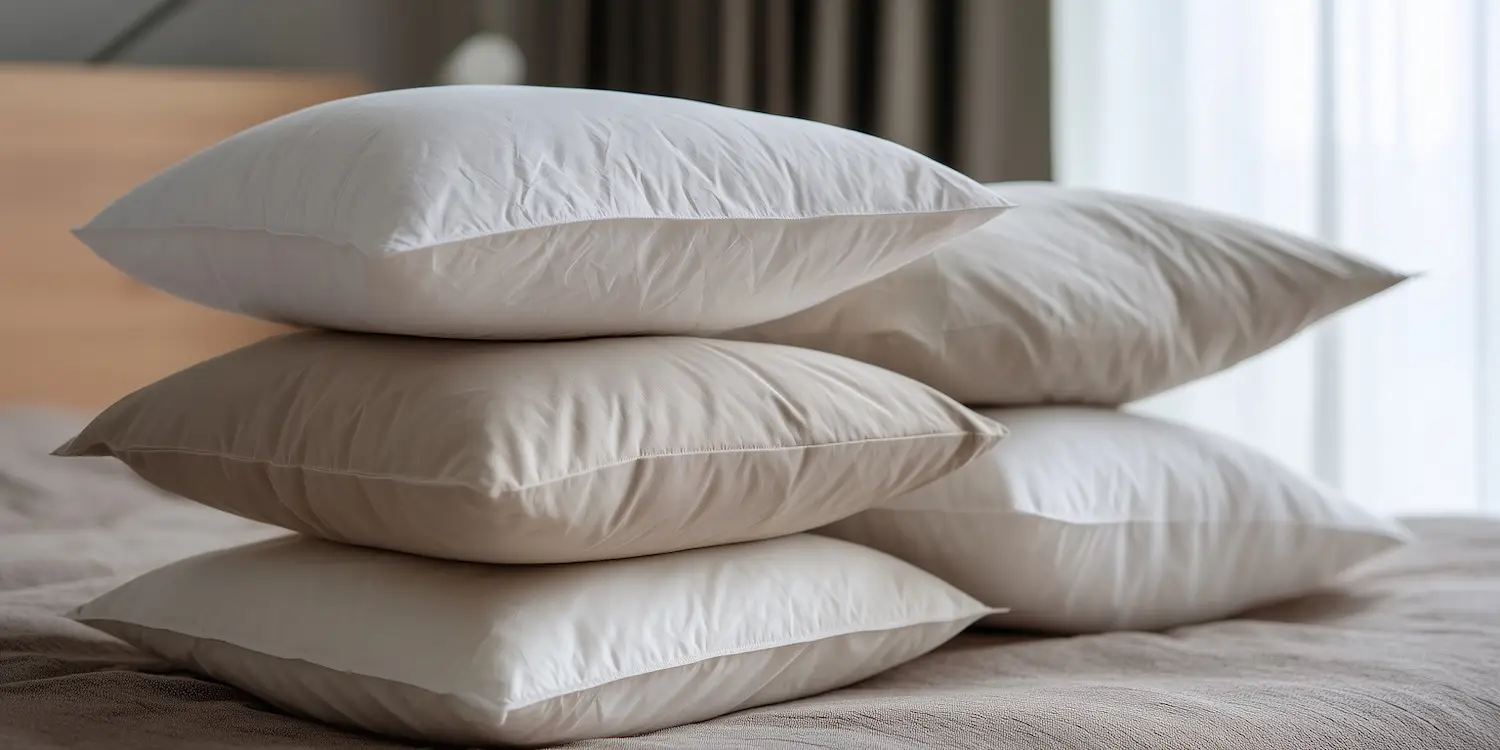Choosing the right pillow can significantly enhance your sleep quality and leave you feeling more refreshed in the morning. Many people overlook the importance of a pillow, but it is just as essential as your mattress for supporting your body. If you have ever woken up with a stiff neck, sore shoulders, or even a dull headache, chances are your pillow is to blame. This guide explores how to find the best pillow for you, taking into account materials and fillings, sleep positions, and personal comfort preferences. With the right choice, you can improve your sleep quality, reduce discomfort, and establish a healthier bedtime routine. Let’s explore how to find the perfect pillow for a restful sleep.

Why The Right Pillow Matters
A pillow is more than just a soft object to rest your head on. It plays a vital part in aligning your spine, alleviating pressure points, and supporting natural breathing during sleep. When your head is properly supported, the muscles in your neck and shoulders can relax, helping your body reach deeper stages of rest. Conversely, an unsuitable pillow can lead to poor posture, muscle strain, and even disrupted sleep. Waking up with tension or aches often signals that your pillow no longer offers the right level of support. By choosing thoughtfully, you can fall asleep more quickly, wake up energised, and reduce discomfort that persists throughout the day.
Choosing A Pillow Based On Your Sleep Position
One of the key considerations when choosing a pillow is your usual sleeping position. Side sleepers often benefit from a firm or medium-thick pillow to ensure their head, neck, and spine are correctly aligned. Without sufficient height and firmness, the head may sink too low, resulting in discomfort in the neck and shoulders. Back sleepers typically require a pillow that provides gentle support without forcing their head forward, so a medium-height pillow filled with memory foam or latex is usually ideal. Stomach sleepers usually prefer a softer, thinner pillow, which lessens strain on the neck and spine. Some people who sleep face down even find they sleep better without a pillow at all, as it stops their head from being pushed into an uncomfortable angle.
Understanding Pillow Fillings
The material inside a pillow greatly influences comfort and durability. Memory foam pillows mould to the shape of your head and neck, providing personalised support and relief from pressure points. They may feel warmer than other options, but they are excellent for anyone needing focused comfort. Latex pillows are naturally springy and supportive, while also being resistant to dust mites and mould, making them ideal for allergy sufferers. Feather and down pillows offer luxurious softness and are highly breathable; however, they may not provide sufficient firmness for those requiring extra support. Synthetic fillings, typically made from polyester, are lightweight, affordable, and hypoallergenic, making them a popular choice for households with allergies. They are easy to wash but may flatten or lose shape more quickly than natural fillings.
Firmness Levels And Personal Preference
Firmness is a crucial factor to consider when selecting the ideal pillow. Some people enjoy the feeling of sinking into a soft cushion that cradles the head, while others prefer the firm structure of a sturdier option that holds everything in place. Medium-firm pillows are often considered a safe choice because they strike a balance between comfort and support, making them suitable for most sleeping styles. However, personal preference is key. It is worth trying different firmness levels until you find one that enables you to sleep deeply without waking up with aches or stiffness.
Speciality Pillows For Added Support
Alongside traditional pillows, there are specialised designs that cater to specific needs. Orthopaedic pillows are shaped to follow the natural curve of your neck, which can be particularly helpful if you suffer from chronic neck pain or stiffness. Cooling pillows made with gel inserts or breathable fabrics help regulate body temperature, which is beneficial if you often wake up feeling overheated. Pregnancy pillows are larger, full-length cushions that support the back, hips, and bump, helping expectant mothers to sleep more comfortably. Each of these options has been designed to address common sleep issues and can significantly improve sleep quality.
Caring For Your Pillow
Regardless of the type of pillow you select, it will not last forever. Over time, pillows lose their shape and ability to support your head correctly. Most need replacing every eighteen months to two years, although pillows made from high-quality materials may last longer. Using a pillow protector is an easy way to prolong the life of your pillow by keeping it free from dust, sweat, and allergens. Regular washing following the manufacturer’s instructions is also crucial, as it helps maintain freshness and hygiene. Keeping your pillow clean and supportive will foster a healthier sleep environment, ensuring that your investment continues to provide benefits night after night.
Final Notes About Choosing The Right Pillow
A good pillow is more than just a finishing touch; it is a vital part of a restful night’s sleep. Finding one that supports your preferred sleeping position, maintains proper alignment, and suits your comfort preferences can significantly enhance your morning experience. When your neck and shoulders are adequately supported, your body can fully relax, allowing you to drift into a deeper, more restful sleep. Take time to test different fillings and firmness levels until you find the one that feels right. A high-quality pillow not only helps you sleep better but also protects your posture, energy, and overall well-being. Investing in the right pillow is, quite simply, an investment in better mornings.
Frequently Asked Questions About Finding The Right Pillow
What is the best pillow for neck pain?
The best pillow for neck pain is usually one that supports spinal alignment, such as a memory foam or orthopaedic design that cradles the natural curve of your neck.
How often should you replace your pillow?
Most pillows should be replaced every 18 to 24 months, depending on the filling and quality. When a pillow becomes lumpy or flat, it is time to change it.
Which pillow is best for side sleepers?
Side sleepers often require a thicker and firmer pillow that fills the gap between the head and shoulders to maintain a straight spine throughout the night.
Are memory foam pillows suitable for everyone?
Memory foam suits many people, especially those with joint pain or tension, but it may feel too warm for some sleepers who prefer a cooler material.
Can pillows help with snoring?
The right pillow can help reduce snoring by keeping the head and neck supported in a way that keeps airways open, particularly for those who sleep on their back.
For more detailed advice on sleep health, visit The Sleep Charity and NHS websites. You might also like this article: Helpful guide to choosing the perfect mattress for a good nights sleep.
